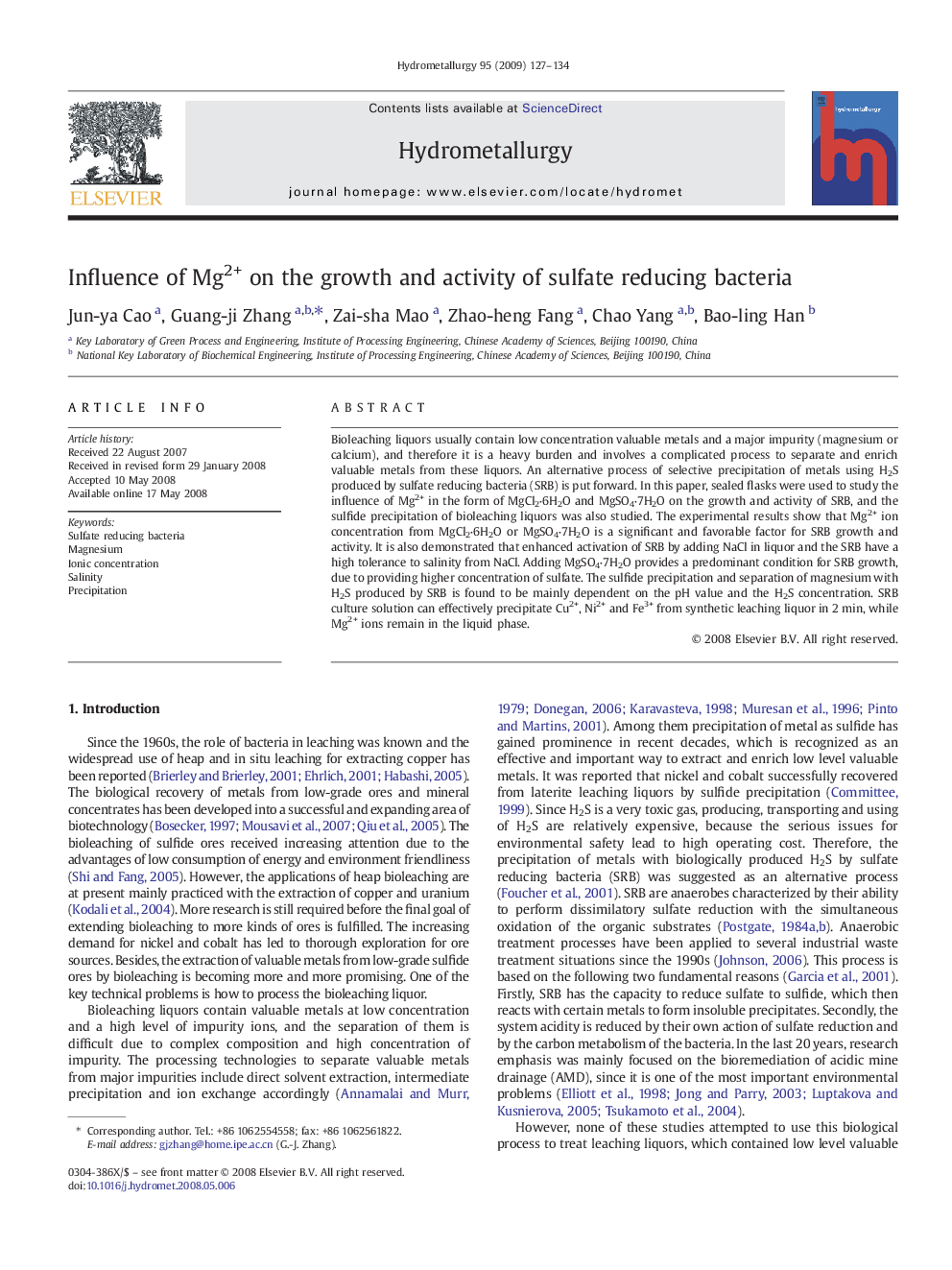| Article ID | Journal | Published Year | Pages | File Type |
|---|---|---|---|---|
| 213051 | Hydrometallurgy | 2009 | 8 Pages |
Bioleaching liquors usually contain low concentration valuable metals and a major impurity (magnesium or calcium), and therefore it is a heavy burden and involves a complicated process to separate and enrich valuable metals from these liquors. An alternative process of selective precipitation of metals using H2S produced by sulfate reducing bacteria (SRB) is put forward. In this paper, sealed flasks were used to study the influence of Mg2+ in the form of MgCl2·6H2O and MgSO4·7H2O on the growth and activity of SRB, and the sulfide precipitation of bioleaching liquors was also studied. The experimental results show that Mg2+ ion concentration from MgCl2·6H2O or MgSO4·7H2O is a significant and favorable factor for SRB growth and activity. It is also demonstrated that enhanced activation of SRB by adding NaCl in liquor and the SRB have a high tolerance to salinity from NaCl. Adding MgSO4·7H2O provides a predominant condition for SRB growth, due to providing higher concentration of sulfate. The sulfide precipitation and separation of magnesium with H2S produced by SRB is found to be mainly dependent on the pH value and the H2S concentration. SRB culture solution can effectively precipitate Cu2+, Ni2+ and Fe3+ from synthetic leaching liquor in 2 min, while Mg2+ ions remain in the liquid phase.
